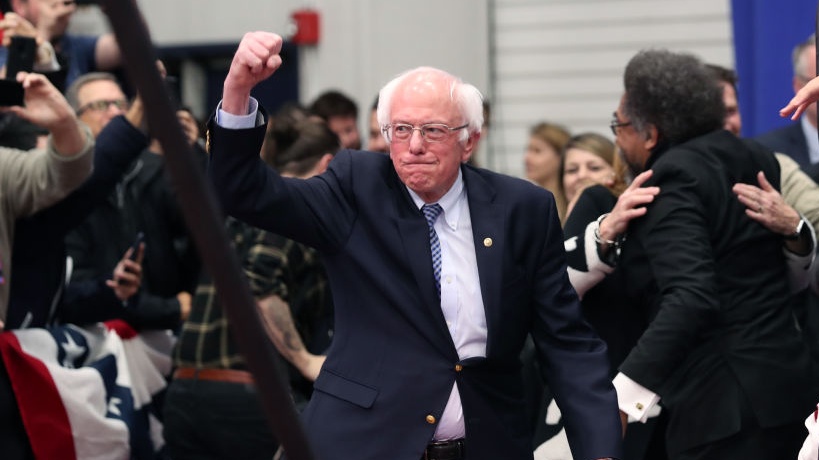The winner in the New Hampshire primary Tuesday night was Sen. Bernie Sanders, winning big with young voters, the Washington Post reported.
By a vast margin, Sanders won over young Democratic primary voters more than his opponents in the race.
"Sanders, a self-described democratic socialist who has refused to register as a Democrat, now has emerged alone among the most liberal candidates," Washington Post reported. "His continued strength is likely to trigger an increasingly vocal backlash from the Democratic establishment, which views his efforts as a hostile takeover of the party and fears that as the nominee he would ruin Democratic chances down the ballot."
And it is not just white people — Black people are now starting to like Sanders.
Sanders had the most non-white voters in the state, Newsweek reported. According to Morning Consult, Sanders gained 10 points among Black voters with 27% pledging their support to the senator. A poll from Monmouth University stated Sanders had 28% of the minority voters.
In the exit polls, conducted by Edison Media Research, Sanders was leading in voters ages 18 to 29 with 51% voting for the senator. In second and third place for the coveted young demographic are former South Bend Mayor Pete Buttigieg with 20% and Sen. Elizabeth Warren at 6%.
Although the Democratic socialist seized a win in New Hampshire for the second time, his support amongst older voters fell. Between the ages of 30 and 44, Sanders received about 36% of the vote while his competitors Buttigieg and Warren received 22% and 13%, respectively.
"Four years ago, Sanders crushed Hillary Clinton by more than 22 points. This year, he narrowly edged out former South Bend, Ind., mayor Pete Buttigieg, earning 25.8 percent of the vote (as of writing) to Buttigieg's 24.5 percent," the Post reported.
With voters aged 45 to 64, Buttigieg received the most votes with the voter percentage at 27%, followed by Sen. Amy Klobuchar at 24% and Sanders at 19%.
And among voters 65 and older, Klobuchar had the most votes at 32%, followed by Buttigieg at 24% and Sanders at 14%.
One explanation from Vox on Sanders' bittersweet victory is that he can ignite newer voters, but older ones are skeptics of the socialist messages.
"He seems able to excite younger people who are less likely to vote — maybe a supporting point for his theory that he can ignite a political revolution by empowering voters who are historically less likely to turn out. But older voters in New Hampshire simply didn't seem convinced by his campaign, being more evenly divided among the Democratic field overall."
